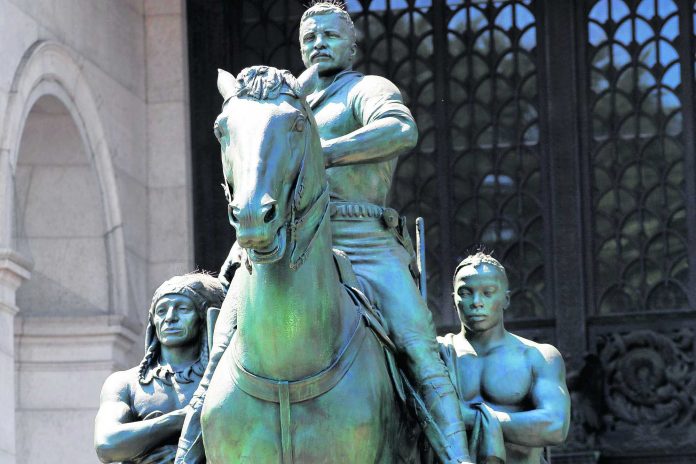
Associated Press
NEW YORK (AP) — A prominent statue of Theodore Roosevelt at the entrance of The American Museum of Natural History will be removed after years of criticism that it symbolizes colonial subjugation and racial discrimination.
The New York City Public Design Commission voted unanimously Monday to relocate the statue, which depicts the former president on horseback with a Native American man and an African man flanking the horse, according to The New York Times.
The newspaper said the statue will go to a yet-to-be-designated cultural institution dedicated to Roosevelt’s life and legacy.
The bronze statue has stood at the museum’s Central Park West entrance since 1940.
Objections to the statue grew more forceful in recent years, especially after the murder of George Floyd that sparked a racial reckoning and a wave of protests across the U.S.
In June 2020, museum officials proposed removing the statue. The museum is on city-owned property and Mayor Bill de Blasio supported removal of the “problematic statue.”
Museum officials said they were pleased with the commission’s vote in a prepared statement emailed Wednesday and thanked the city.
Sam Biederman of the New York City Parks Department said at the meeting Monday that although the statue “was not erected with malice of intent,” its composition “supports a thematic framework of colonization and racism,” according to The Times.
Roosevelt, a pioneering conservationist, was a founding member of the institution.



















